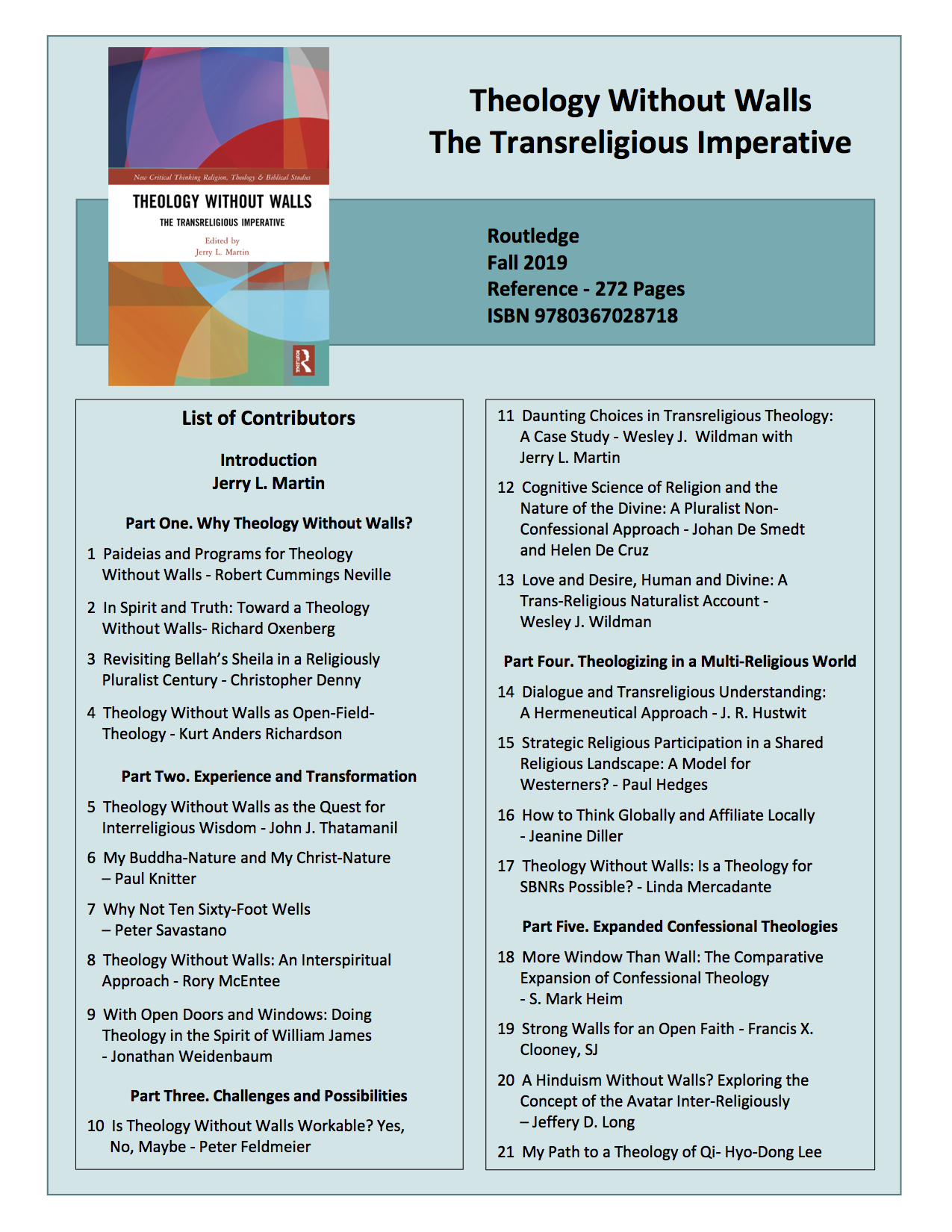Theology Without Walls: The Transreligious Imperative has just been published by Routledge. It is a landmark event. It speaks to the urgent theological challenge of our times. Once we look beyond confessional walls, even when primarily working within our own traditions, richer insights into the divine or ultimate reality become possible. The explorations beyond the walls can take us in many directions. In this volume, a diverse array of twenty-one scholars explore the different avenues new theological thinking open up. Including sympathetic critics, the collection taken as a whole is much stronger than any single essay read apart. Together, they make a powerful case for the importance and potential of Theology Without Walls.
Thinking about ultimate reality is becoming increasingly transreligious. This transreligious turn follows inevitably from the discovery of divine truths in multiple traditions. Global communications bring the full range of religious ideas and practices to anyone with access to the internet. Moreover, the growth of the "nones" and those who describe themselves as "spiritual but not religious" creates a pressing need for theological thinking not bound by prescribed doctrines and fixed rituals. This book responds to this vital need.
The chapters in this volume each examine the claim that if the aim of theology is to know and articulate all we can about the divine reality, and if revelations, enlightenments, and insights into that reality are not limited to a single tradition, then what is called for is a theology without confessional restrictions. In other words, a Theology Without Walls. To ground the project in examples, the volume provides emerging models of transreligious inquiry. It also includes sympathetic critics who raise valid concerns that such a theology must face.
This is a book that will be of urgent interest to theologians, religious studies scholars, and philosophers of religion. It will be especially suitable for those interested in comparative theology, inter-religious and interfaith understanding, new trends in constructive theology, normative religious studies, and global philosophy of religion.
Reviews
"Theology, Walls, and Christian identity: A Review Essay" - Professor Leo D. Lefebure
Leo D. Lefebure is the Matteo Ricci, S.J., Professor of Theology at Georgetown University in Washington, D.C., and a Berkley Center faculty fellow. He is also a Long Room Hub Fellow of Trinity College Dublin and a priest of the Archdiocese of Chicago. His books include, among others, Religion, Authority, and the State: From Constantine to the Contemporary World (2016, editor); True and Holy: Christian Scripture and Other Religions (2014); The Path of Wisdom: A Christian Commentary on the Dhammapada (2011, with Peter Feldmeier); Revelation, the Religions, and Violence (2000); and The Buddha and the Christ (1993). Lefebure is vice president of the Society for Buddhist-Christian Studies, a research fellow at the Chinese University of Hong Kong, and a trustee emeritus of the Council for a Parliament of the World’s Religions. He previously taught a class supported through the Berkley Center's Doyle Seminars project. He obtained his S.T.L. from St. Mary of the Lake Seminary and Ph.D. from the University of Chicago Divinity School.

